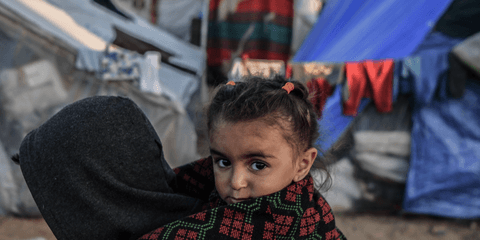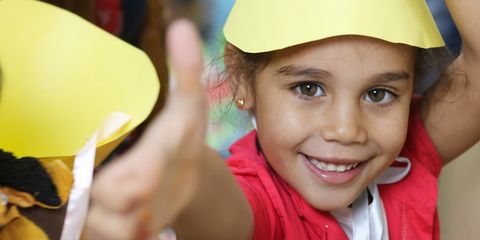20 MAY 2020
Girls and women in Jordan are at greater risk of gender-based violence due to COVID-19 lockdowns. They are also less able to access sexual and reproductive health services or earn an income, an assessment has found.
The COVID-19 crisis in Jordan is having a disproportionate impact on girls and young women in the most deprived communities, placing them at greater risk of gender-based violence, making it harder for them to access sexual and reproductive health services, and leaving the vast majority unable to earn an income, according to an assessment by child rights and humanitarian organisation, Plan International.
Drawing on surveys, interviews and focus groups involving nearly 400 adolescents and adults from five different locations in Jordan, including Syrian refugee camps, as well as interviews with doctors, nurses, midwives, community workers, youth educators and members of the government, the study highlights how girls and young women are bearing the brunt of the crisis in the country.
Study finds girls and women bear brunt of crisis
The study was carried out by Plan International in April in conjunction with the United Nations Population Fund (UNFPA), and the Institute for Family Health (IFH). It shows:
- 69% of respondents agreed that gender-based violence has increased since the pandemic started. Emotional and physical abuse, the types most often perpetrated by an intimate partner or family member, were the most commonly reported.
- Women and girls agree that accessing services for gender-based violence and sexual and reproductive health was less difficult prior to the pandemic. The proportion of women who are completely unable to access family planning has increased by 10-20 per cent depending on the age group.
- Fewer women and girls have information on how they can access sexual and reproductive health services compared to before the lockdown. For 10 – 17 year old girls, this has fallen from 37% to 18%.
- 90% of women/girls report not having access to income generating activities or material assistance compared to 74% of men/boys.
- Only 55% of women report that they are able to meet their family’s basic needs during the curfew compared to 58% of men.
Refugees live in overcrowded settlements – social distancing impossible
Jordan is home to more than 700,000 refugees, with the majority of them having fled the conflict in Syria. More than 80% of them live outside of camps in areas that are densely populated and overcrowded. The housing conditions for most refugees means they are typically sharing a room with three others, effectively making social distancing an impossibility.
[Girls have] even less control over their lives and bodies than they had before.
Muna Abbas, Plan International’s Country Director in Jordan, said “Many of the girls and women in Jordan’s poorest communities have already endured displacement and conflict. Now the lockdown has severely disrupted their livelihoods and access to support such as family planning services, leaving them with even less control over their lives and bodies than they had before. On top of this, the pressures and stresses of daily life have been magnified and we know this has led to higher levels of gender-based violence and particularly intimate partner violence.”
Plan International is raising €100 million to protect some of the world’s most vulnerable children and their communities from the impacts of COVID-19. The organisation’s response, covering at least 50 countries, including Jordan, is focused on assisting children, particularly girls, who are disproportionately affected by the crisis.
Ms Abbas continued “We are especially worried about the impact of the crisis on vulnerable children, particularly adolescent girls, who now face a frightening daily reality and an uncertain future. The pandemic has turned their lives, education and livelihoods upside down and this loss of mobility and personal power places them at great risk of exploitation and abuse.”
Pandemic a threat to the rights of women, girls and young people
“In short, the pandemic is a profound threat to the rights of women, girls and young people in the country’s poorest communities and there is an urgent need for concerted, assertive action on the part of the UN, civil society, the government and donors to ensure the protection and empowerment of women and girls.”
Other findings include:
- Shame, stigma, and social pressure continue to be barriers to reporting gender- based violence, while the restrictions on movement are an additional obstacle. The decline in the number of registered cases of gender-based violence during this period suggests that women are less likely to seek help.
- Generalised stress and anxiety are high, especially amongst 18 – 49 year old women, with 78% reporting worries relating to the pandemic.
- 55% of adolescent girls report that they and their peers are doing more household chores during lockdown.
- Only 35% of adolescent girls reported staying connected with and chatting with friends as a common pastime in comparison to 47 per cent of boys.


